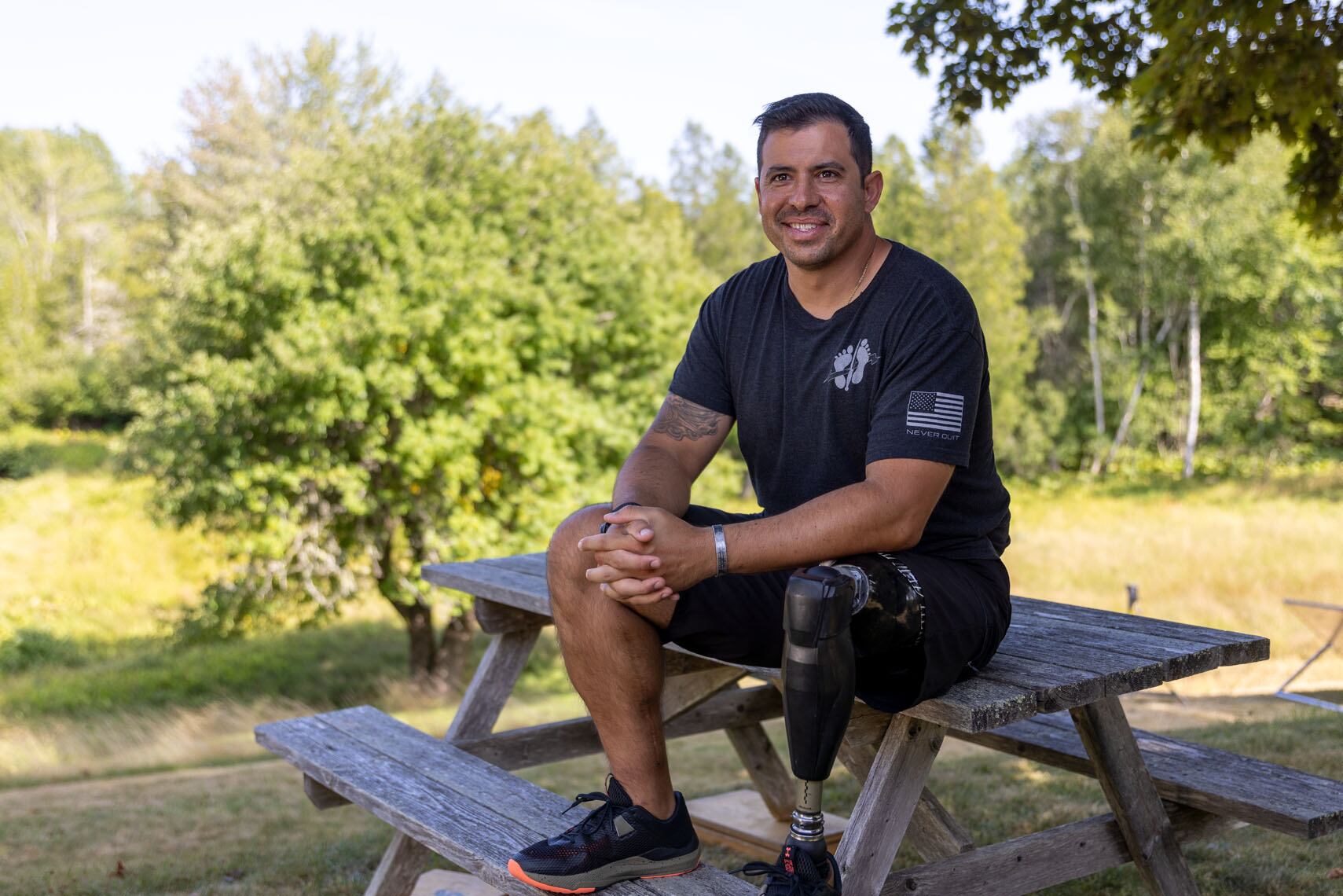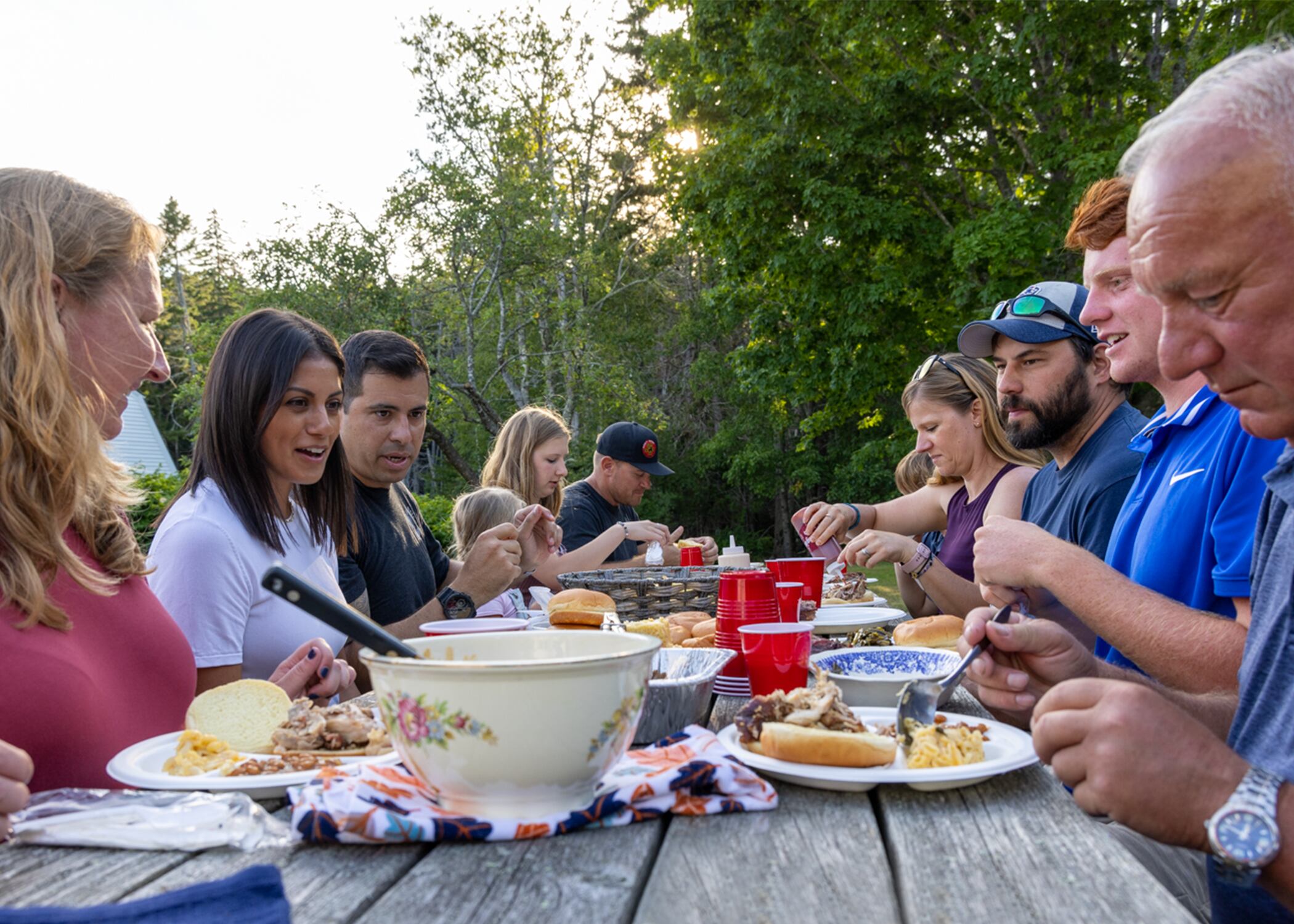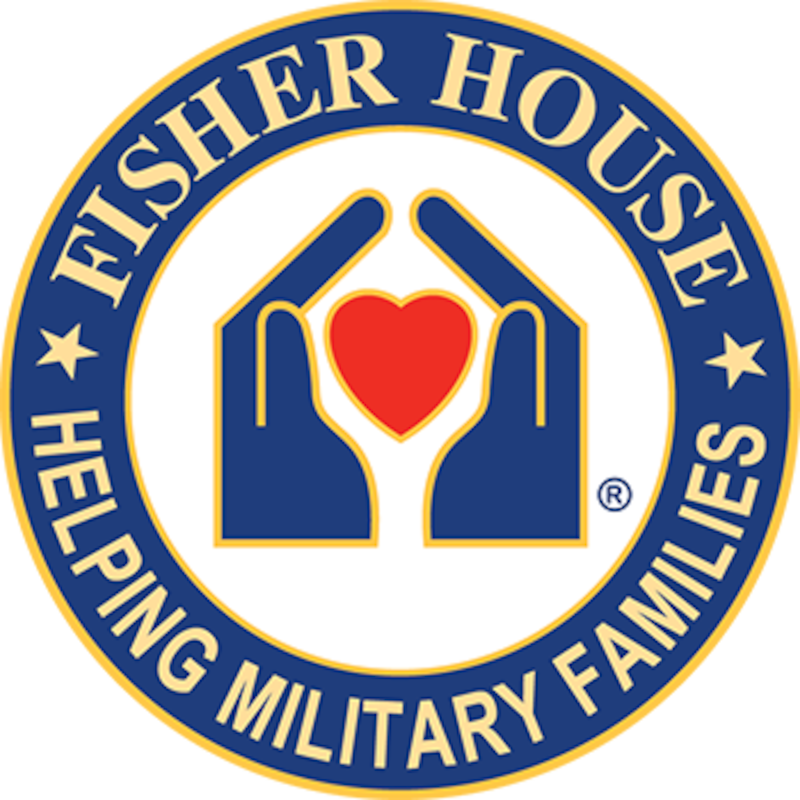August O’Niell’s family is filled with service members and veterans. He and his brother are Air Force pararescuemen and his mom, dad, and stepdad are Air Force veterans. So the family knew the risk of getting the call that no one wants.
Robert was already on his way to his unit headquarters. “I’m backing out of the driveway. I see my mom calling on the cell phone. I knew something was wrong. I answered the phone. She was crying ... ‘Something’s happened to August. I don’t know what’s going on. Nobody’s telling me anything.’ Which is not how the process is supposed to work. And I just said, ‘Stop. I’m going into work. Those people will be able to get answers. I’ll call you when I know something.’”
Robert was able to get news that his brother was alive, but it was bad. His unit immediately got him a flight to Landstuhl, Germany for him to be with August.
“So I packed a 36-hour bag. I had two children, and my wife was pregnant at the time. So I told her, ‘Hey, I’m going to meet Augie.’ And you know, my wife was fully supportive. And I got on a plane.”
He had medical knowledge and, when he saw the leg wounds, knew that August was in for a tough recovery. He sent news back to the family and, exhausted, settled into the hospital room to be close to his brother. He stayed there for about two days, sleeping in the chair, before being told about Fisher House.
“I’m sitting there, concerned about what August’s life is going be like after this. When I initially heard Fisher House, I didn’t know what that was.”
Robert found convenient food, a safe place to stay near August, and comfort at the Landstuhl Fisher House.
He was only the first member of the family to stay at a Fisher House and find comfort with the other families staying there.

August’s injuries were bad enough that he spent three years attempting to rehabilitate his leg before opting for an amputation. Through about 20 surgeries, his mother, sisters, father, and stepfather all came to support him at hospitals in D.C. and Texas, usually staying at a nearby Fisher House.
August even got to join them in a Texas Fisher House. Knowing that his family was taken care of helped him focus on healing.
“It’s comforting knowing that you are not a burden on people because that’s the initial thought, right?” August said. “You’re used to being the savior, not the person that everybody’s trying to fix.”

“Them being [at Fisher House] where there were constantly people coming in and bringing food, there was constantly that community there, where they were able to talk to other family members that had been there a while. And then on top of that, be there for me when I needed them to be, that was just, it’s irreplaceable.”
“I could literally see the Fisher House right outside of my window,” August said. “And so there were multiple times when I’d say bye, and I’d see them turning around and waving.”
August remains on active duty and continues to serve as an Air Force pararescue jumper.





